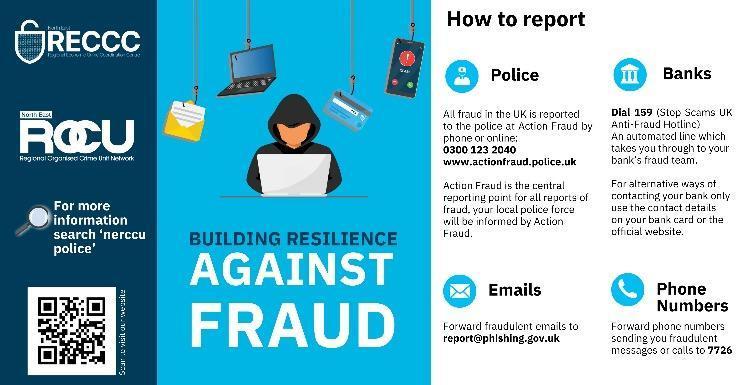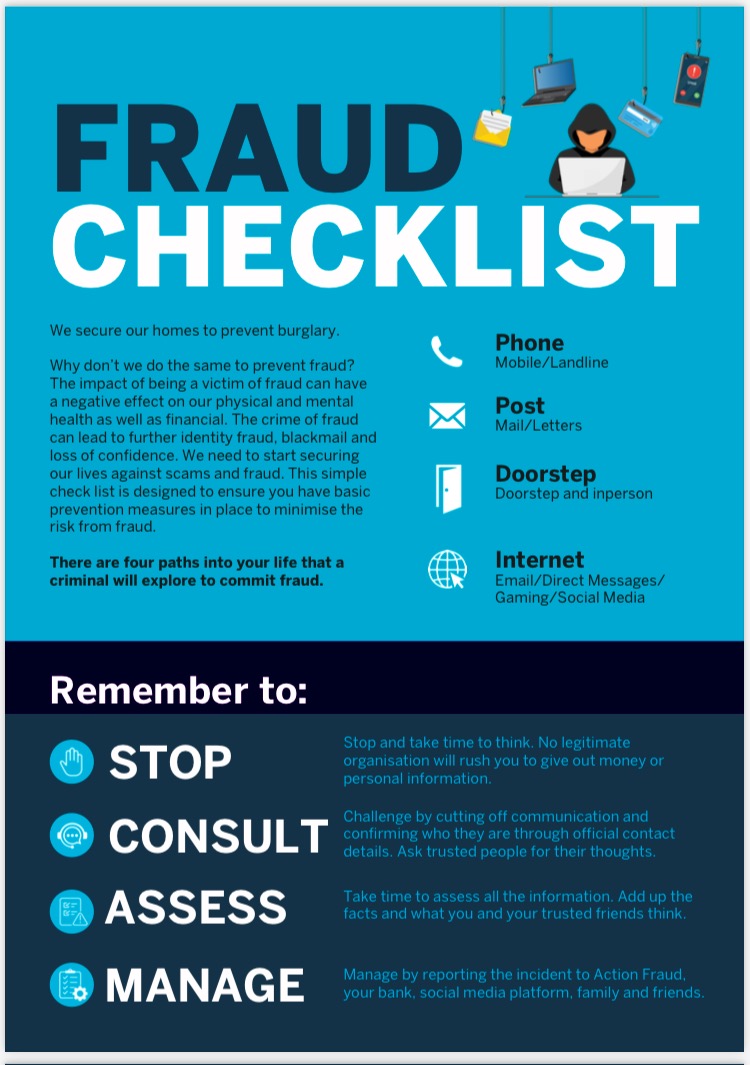Protecting your money: advice for new international students
Avoiding frauds and scams
A scam, or a fraud, is a dishonest or illegal plan or activity for making money. Some scams target individuals and result in a personal loss. Once money has been lost to a fraud or scam it is not always possible to retrieve this, therefore the best way to protect yourself is to understand the methods used by these criminals and be aware of how to spot a potential scam:
Fraudsters use several methods to take money off people. These methods include tricking you into providing bank details so they can take money directly from your bank account; convincing you to make a payment to them; and finding out your personal details so they can open accounts or apply for credit in your name.
A common scam in the UK is to impersonate a trusted organisation, such as a government department, the police or your embassy, then ask or tell you to transfer money or provide bank details or other personal information. Please be aware that none of these organisations will ever contact you via telephone, text or email and ask or tell you to do this. If you receive a text or call asking you to transfer money or provide information about yourself, do not respond and seek advice from the University’s dedicated Fraud Support email address: fraud.support@durham.ac.uk
International students may also be contacted by criminals claiming to the police from their home country. Again, please seek advice before transferring money.
Another common scam is asking for a payment in advance, for example, an administration fee for a paid job. Again, no employer or recruitment agency should ask for this – do not respond to this request and seek advice.
Please also be aware that fraudsters may try to instil a sense of urgency - this is because they don’t want you to have time to think about what you are doing. Again, do not let anyone pressure you into making a decision – if you are unsure, do not proceed and seek advice.
The above are just some examples of scams. To protect yourself please follow this advice if asked to share personal details or transfer money:
- Stop – stop and take five minutes to think before clicking or sending money.
- Challenge – it is OK to reject, refuse or ignore – only a criminal will rush or panic you.
- Protect – if you think you are a victim of a scam, notify your bank as soon as possible and report it to Action Fraud on 0300 123 2040.
Money Mules
A money mule is a person who receives money from a third party into their bank account and transfers it to another account or withdraws it in cash and gives it to someone else – they will usually receive money for doing this. This is a type of money laundering and is a criminal offence. Money laundering is a method used by criminals to conceal the origin of money earned from illegal activity. Students arriving in the UK are sometimes used as money mules as a method of laundering money, so please ensure you protect yourself from this.
How to protect yourself:
- Ensure that you pay tuition fees yourself – do not accept offers from strangers to make payment on your behalf.
- Card payment through the university card payment provider system is the safest method to pay tuition and accommodation fees.
- Do not make payments via a third party – even if they offer ‘proof’ that the bill is fully or partially paid first.
- Never allow anyone else to use your bank account, including ‘selling’ your bank account to another student before you return home.
- Do not respond to job adverts or social media posts that promise large amounts of money for very little work.
- Research a potential employer before handing over your personal or financial details to them.
- Do not allow an employer, or someone you don’t know and trust, to use your bank account to transfer money.
If in doubt, you can contact the University to discuss any concerns: fraud.support@durham.ac.uk
If you lose money to a scam:
- Report this to your bank immediately (for most UIK banks you can call 159)
- Report to Action Fraud: Action Fraud
- Inform the University so we can offer further support: fraud.support@durham.ac.uk
Bringing cash to the UK
It is not advisable to bring a large amount of cash to the UK and around £250 per person should be sufficient to have with you upon arrival. Any more than this is not necessary as most businesses accept card payment (see section on ‘Banking’ for more information) and the University will not accept payment for tuition fees in cash. It is also a less secure method of transporting money, as there is the risk you may mislay this or even have this stolen from you. There are also limits on the amount of cash you are permitted to bring into the UK without declaring this upon entry:
Take cash in and out of the UK - GOV.UK (www.gov.uk)




/prod01/prodbucket01/media/durham-university/support-services-/support-hub/School-of-Education-reception-89893-1999X431.jpg)